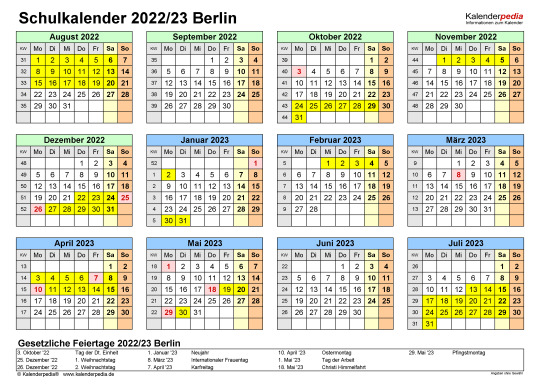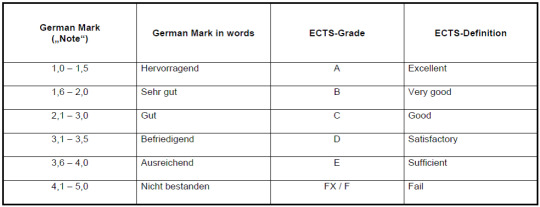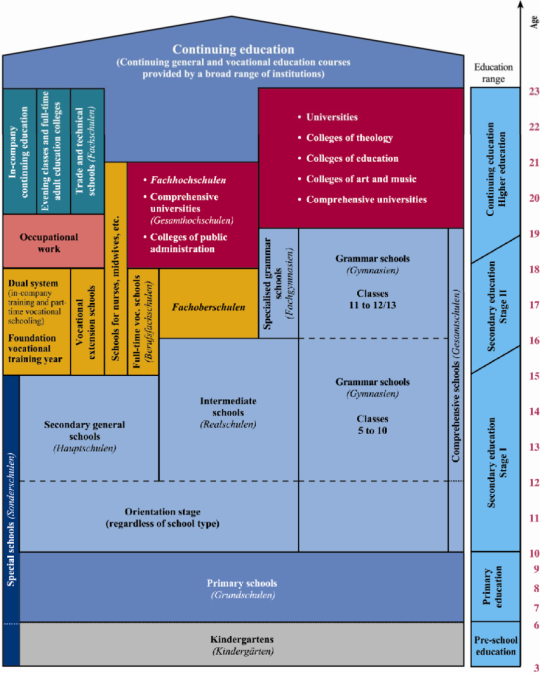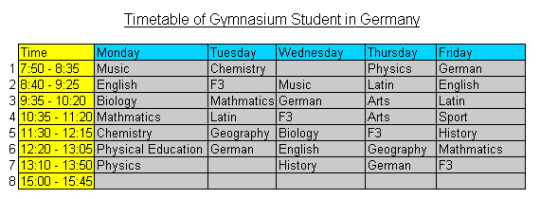#montessori education system
Explore tagged Tumblr posts
Text
Discover Montessori school In Kolkata with Kidzland School, Where Montessori education system meets play-based learning in Kolkata, India.
#Montessori school In Kolkata#Montessori education system#play-based learning in Kolkata#Kidzland School#Kolkata#India
0 notes
Text

Unleash a world of knowledge with this amazing Turtle and Tortoise Unit Study Montessori Kit! Designed for hands-on learning, this engaging educational kit offers a deep dive into the anatomy, species differences, and life cycles of turtles and tortoises. The kit is awash with captivating visual aids like cards, posters, and puzzles that not only aid in recognition but also provide a fun-filled learning experience. The printable resources in this kit make it a breeze to learn about these fascinating reptiles from the comfort of your home. Now learning about turtles and tortoises is as easy as print and play!
#cute animals#turtle#turtles#tortoise#unit study#education#montessori#reptile#reptiles#3 part cards#techers#educators#parents#homeschooling#educative system#biology teachers#biology#anatomy#life cycle#animals#edu#etsy link#etsy listing#home school#preschool#nursery#child care#lesson#printable#flashcards
2 notes
·
View notes
Text
tbh very very grateful i spent my formative “learning to read” years in a weird private school in the US…..
#i was quite young but they did most certainly teach me how to read#montessori has a bad rap but they did teach my sister long division at six years old#it wasn’t until 7th grade when the canadian public education system finally caught up with montessori third grade
13 notes
·
View notes
Text
The Decimal System
With an abundance of materials in the Early Childhood classroom that concretely introduce the decimal system, students develop a thorough understanding of place value and quantity. These materials are used in sequential order, so students build on previous knowledge to learn more complex concepts. These materials use a color-coding system for place value that is consistent throughout the Early Childhood through Upper Elementary years. In early lessons, students use these colors to "build" numbers concretely, using beads and blocks. Later, they use this knowledge to add, subtract, multiply, and divide large numbers.
#decimal system#place value#math is fun#hands on learning#concrete to abstract#order#concentration#coordination#independence#academically prepared#confident learner#competent learner#tma#montessori#private school#arlingtontx#arlington#texas#infant#nido#toddler#early childhood#preschool#kindergarten#elementary#education#private education#nontraditional#the montessori academy of arlington
0 notes
Text
continued: how i think the gravity falls kids grew up since they're 25 now
Mabel Pines

after weirdmageddan, stayed in touch with candy and grenda and called or facetimed them whenever possible
had an art teacher in freshman year of high school that totally changed her life trajectory by 1) making her realize she's bisexual and 2) making her realize she wants to be an art teacher
she and dipper spend summers in gravity falls throughout high school, and she befriends pacifica at 15-16 after paz finds her waiting for the bus in the rain and picks her up in her car, saying she's 'repaying the favor' from their min golf tournament 4 years ago. they end up sitting in her car outside the shack for a while just talking, and mabel likes the person pacifica's become.

has always been dipper's biggest supporter in his transition, but does find it fascinating since they're identical twins (in my head shh)
she and candy had an intense homoerotic friendship summer of mutual pining, but ultimately made the (surprisingly mature) decision to just remain friends and not risk it
she does also meet mermando again when he returns to profess his undying love when she's 17 - she turns him down, but not before making out with him just to be able to say she did.

she decides to go to art school, and gets into otis college, which works out well since it's not far from UCLA & dipper
she and paz both had awful relationship experiences their first year of college and have like, pack-bonded even more because they support each other through it (while dipper paced and wanted to punch some people)
was the first person to clock that dipper and pacifica liked each other before either of them realized it, and was actively trying to manufacture situations for them to work it out

graduated with her bfa in art and design education, and does her practicum at a montessori elementary school, where she ends up getting hired after graduating
on the side, she has an etsy where she designs clothing patterns and sells them, and hopes to have an actual clothing line one day
still has waddles (domestic pigs live 10-15 years!) and has contemplated getting him ESA certified in order to bring him to work, but dipper lectured her it was "abusing the system," (it is) so she didn't.
extra: she loves chappell roan. secretly, so does dipper.
#mabel pines#gravity falls#trans dipper pines#dipper pines#pacifica northwest#dipper x pacifica#dipcifica
115 notes
·
View notes
Text
but also everyone finishing this year and me still having a year left is so …. and all of them saying they want work after uni is so …. like am i doing something wrong is this all wrong have i made a mistake
there’s a really cute guy in my two morning uni classes …. actually devastated …. and he’s smart …… AND HES STUDYING TO BE A TEACHER ??????? nooooooooooooooooo
#i know i’m fine !!! we all go life differently and i don’t want work straight out of uni#because i will quit after five years like the rest of them !!!#i need to study montessori to give myself a fighting chance at this career#i don’t want to feel so defeated by the horrible system that is education#me constantly : think about the cute guy#me also at the same time : okay but what if i’m wrong about all of this#uni is so it does this to me every semester#anw i did a tarot reading for this semester and it said i can expect new connections romantic platonic etc#exciting stuff#i need to get out of my head#i need to let go of shame
1 note
·
View note
Text
Deutschribing Germany
Education
Education in Germany is free and compulsory between ages six and sixteen. States (Länder) are largely responsible for education, with the federal government playing a minor role.
Types of schools
The vast majority of children attend state schools, but there are private schools (Ersatzschulen) as well. The latter have very low tuition fees and are also subsidized by the state, which effectively makes them privately-run schools funded by the state. Some are run by religious groups.
School terms
The school year is divided into two terms (from August to January and from February to July) and starts after the summer break, which differs from state to state but usually finishes in mid/end-August. Children have twelve weeks of vacation in addition to public holidays. Exact dates differ between states, but there are generally six weeks of summer vacation, two around Christmas, two around Easter, and two in the fall during the harvest season, since farmers used to need their children for field work.

Grades
The German grading system is as follows, from highest to lowest: sehr gut (1.0–1.5), gut (1.6–2.5), befriedigend (2.6–3.5), ausreichend (3.6–4.0), and nicht bestanden (4.1–5.0). The minimum to pass is four.

Levels

Preschool (Kindergarten)
Preschool education is neither mandatory nor free. Children between the ages of 2 and 6 attend Kindertagesstätte (Kita, “children’s daycare centers”). Many Kitas follow a certain educational approach, such as Montessori or Reggio Emilia.
Primary education (Primarstufe)
Primary education takes place in Grundschulen and generally lasts four years, from 6 to 10 years old. In Berlin and Brandenburg, it lasts six years.
Students are typically taught art, a foreign language (English or French), general studies (natural and social science), German, math, music, physical education, and religion or ethics.
Secondary education (Sekundarstufe)
Secondary education can take place in any of the following schools:
Gymnasium (grammar school) until grade 12 or 13 (ages 10–11 to 17–18/18–19), with Abitur as exit exam to qualify for university
Realschule (intermediate school) until grade 10 (ages 10–11 to 15–16), with Realschulabschluss
Hauptschule (secondary general school) until grade 9 or 10 (ages 10–11 to 14–15/15–16), with Hauptschulabschluss
Gesamtschule (comprehensive school) until grade 10 or 12/13 (ages 10–11 to 15–16 or 17–18/18–19)
The Gymnasium provides in-depth general education for university studies. Hauptschulen teach basic general education leading to vocational school or university entrance qualification. Realschule offers more extensive education than Hauptschule, leading to a vocational or university entrance qualification. A Gesamtschule combines all the aforementioned schools.
There are about twelve compulsory subjects in every grade: biology, chemistry, civics/social/political studies, up to three foreign languages, geography, German, history, math, music, physical education, physics, religion/ethics, and visual arts.

(F3 means Fremdsprache 3 [third foreign language], which is usually French or Spanish)
In grades 11–12/13, each student majors in two or three subjects (Leistungskurse), in which there are usually five lessons per week. The other subjects (Grundkurse) are usually taught three times a week.
Vocational training (Berufsbildung)
Vocational training lasts between two and three and a half years and can take place in any of the following types of school:
Berufsschule (vocational school): the standard type of vocational school, it prepares students for further vocational education or for a job in a profession. Apprentices attend school twice a week and spend the rest of the week working at a company, so they gain knowledge of theory and practice.
Berufsfachschule: similar to Berufsschule, it is aimed at people who want to study specific subjects, such as nursing or occupational therapy.
Fachoberschule (vocational high school): students who have obtained a Realschulabschluss or Hauptschulabschluss can attend a Fachoberschule, where they will specialize themselves in technology, economy, or administration and management, among other subjects. After completing the program, they can study for a university degree after passing the Abitur.
Berufsoberschule (upper vocational school): those who want to attend one need to have graduated from a Berufsschule. It provides in-depth education and training.
Higher education (Tertiärbereich)
To attend university, students need to pass the Abitur exams, of which at least one is oral. They are tested on four or five subjects, including their two or three Leistungskurse and two or three Grundkurse (German, math, and the first foreign language). All knowledge areas must be covered, including language, literature and the arts; social sciences; math, natural sciences and technology, and sports. Each semester of a subject studied in the final two years of Gymnasium yields up to fifteen points, where advanced courses may count double and final examinations count quadruple.
There are 380 universities in Germany, of which 114 are private. Public universities charge fees of around €150–350 per semester, which often include the cost of public transportation. Tertiary education institutions are classified into Universität or Hochschule. The former term is reserved for those which have the right to confer doctorates, in a similar distinction to universities and colleges in the United States. Fachhochschulen (Universities of Applied Sciences) are a type of Hochschule that concentrates on applied science and has a more practical profile with a focus on employability.
There are three types of admissions procedures for degree programs:
Free admissions: every applicant who fulfills the requirements is admitted. This is usually the case in programs in which many students quit, such as engineering, mathematics, or physics.
Local admission restrictions: only a limited number of places are available and students are admitting according to numerus clausus, whose criteria vary depending on the institution and the program but generally include the final grade of the Abitur, a weighted grade average that increases the weight of relevant school subjects, interviews, motivation letters, and/or letters of recommendation.
Nationwide admission restrictions: to study dentistry, medicine, pharmacy, or veterinary medicine, there is a nationwide numerus clausus in which applications are handled centrally for all universities.
There are three official university degrees: Bachelor (bachelor’s degree) takes three years to complete, Master (master’s degree) lasts two years, and Doktorat (doctoral degree or PhD) takes between two and five years.
Students can usually choose freely from all courses offered by the university, but all bachelor’s degree programs require a number of particular compulsory courses in the field of the study program.
62 notes
·
View notes
Note
Well, the school system at least. I'm still floored that they went with 'two five year olds systematically cheated their way through school for 9 years' and tried to pin it on one of the kids.
That Guy apparently has a thing against public education anyway. The 'no classes no grades, kids do what they want' idea that Bustier does is his brainchild.
I think it’s technically called Montessori but they only do it up until middle school as far as I know
Anyway it still misses the point that different children benefit from different teaching styles and some need more structure than others and just kinda dropping every single one in a library with no direction is still going to screw over a lot of kids
13 notes
·
View notes
Text

Why the Best Preschool in Patiala is Using Montessori Education over Traditional?
What is this Montessori education system, and why is the best Play way School in Patiala using it over the traditional? The interesting structure made headlines when Amazon’s founder, Jeff Bezos, declared an aid of $1 billion to schools.......
2 notes
·
View notes
Text
I'm not going to bother reblogging the post, because it's late at night and I don't want to start an argument, but no, Montessori is not about "letting kids do whatever they want." You're thinking of unschooling. Which is based, don't get me wrong, but it's a different thing.
It's also not "for rich white people." I mean, I can't speak to the white people part, because I am definitely that, but I went to a Montessori preschool/kindergarten while my mom was on food stamps, so I can definitely speak to the rich people part. I do agree that there are class-based barriers to accessibility and I definitely think that's a problem but stop acting like the only people who could possibly want something better for their kids than what the public education system offers are privileged in every way a person can be privileged.
I'm probably not a verifiable source-- I'm not a teacher, I'm just a person who's been researching various philosophies of education on my own time for years and would absolutely be on the path towards becoming one (specifically a Montessori teacher) if people in this country weren't deadset on preventing trans people from being anywhere near children-- but when someone's this wrong, I feel the need to stick up for the thing I'm passionate about.
Now, if you want to be mad at an educational philosophy, I'll gladly direct your attention to Waldorf. No one likes Waldorf.
#though there's also the fact that a lot of schools that use the name but don't actually follow the philosophy/methodology#so maybe the person who wrote that post just encountered a Really Bad 'montessori' school#idk
10 notes
·
View notes
Text
So for the first three years I had at my knock off Montessori elementary/middle school–where classes were divided into first and second grades; third, fourth, and fifth grades; and sixth, seventh, and eighth grades and yes this was an educational clusterfuck my high school teachers took glee in pointing out in front of all the other students–we had a Japanese language program, and because of my town's main university having rich history of enrolling both Japanese-American students and Japanese from abroad students (ask me about that history, it's a nice story) we had no shortage of Japanese-speaking college students looking to make some extra cash. So for a few years I was speaking Japanese fairly decently, but the school system slashed our funding and I didn't/couldn't keep up with it independently so now I can barely count to ten.
Anyway this is not about that, it's about how after a year of successfully learning basic Japanese, I'm in the first day of second grade sitting on the floor with the rest of the first and second graders in my class because we were still young and flexible enough to sit crisscross applesauce, when our Japanese teacher from last year surprised us, after we had been told she was going back to Japan and we'd have a new teacher this year. So us second graders immediately stand, bow, and happily chorused "Konnichiwa, Emi-sensai!" and the first graders looked so fucking freaked out lol. I don't know if they even knew Japan was a place yet, let alone had their own language. Or maybe they were panicking because they thought they were supposed to stand, bow, and say something seemingly strange too idk. I had a new friend I had just made tugging on my pantleg looking at me nervously because I and half the class seemingly turned into robots with a signal in our brains only we second graders could detect. That memory popped into my head and made me laugh just now
#wonder where I'd be language wise if our school system hadn't obliterated our funding#i took German in high school to fair success but those brain muscles have also atrophied#and i fear my brain is too rigid to learn French an ASL now#sigh
10 notes
·
View notes
Text
Pokémon’s educational system is an ideal of those who believe in the Montessori methods of early childhood, because children pick their interests to study alongside core classes (see Scarlet and Violet’s schools). In this essay, I will —
34 notes
·
View notes
Text

Watercolor work in printable material for learning, made with a lot of love. A great resource for the classroom or for homeschooling.
The product includes: • Letters (WHALES) • Whale poster - 4 types • Whale anatomy poster - 2 types • 3-Part cards - Narwhal, Orca, Humpback whale, Blue whale • Definition cards - 4 types • Cards for writing • Puzzle - with two parts and with 9 parts. • Difference between Toothed and Baleen whales - poster • Tic Tac Toe
#whales#whale shark#whale tail#dolphin#mammals#animals#school#education#preschool#montessori#homeschool#learning#teacherforpreschool#cute animals#educators#educative system#parenting#kids toys#children#little stories#parents#facts#science#biology#ecology#scientists
1 note
·
View note
Note
You mentioned that Swedish schools aren't allowed to charge for the classes themselves but instead sjools like Hillerska charge for boarding. Does that mean all private schools are boarding schools? What about schools that don't follow the Swedish education system, like international schools?
No, there's only two boarding schools left in all of Sweden, and they had a special status until 2016 when that special status was revoked. Since then they're treated like any other private school, i.e. they can't charge for tuition, and instead receive funding per student like any other school, public or private.
And you can't not follow the educational system, that'll get your school shut down pretty quickly. You can ask for certain exemptions from the standards, like for example Montessori or Waldorf schools get for their special pedagogy.
26 notes
·
View notes
Note
Do you have any headcanons about the Maleficent (2014) movie and its events within the Descendants universe?
Yes, that it shouldn't be counted because if that version of Maleficent is involved, nothing in Descendants makes sense. And I mean, it makes even less sense than it already does. Only in a version where Ingrith won and somehow brainwashed Aurora, Descendants could have happened.
I know because after I saw Maleficent 1 and 2 I tried to make it fit with Descendant's narrative but I ended up creating an AU in which the world split between people who wanted to keep magic and people who wanted to banish it (so not Heroes and Villains, but something more morally nuanced, just like the Maleficent movies are), therefore the Magic people led by Aurora and Maleficent made a divide and basically ended up banishing under a Barrier all the people who didn't want magic.
It basically became a reverse roles-au, where Ben was the one under the Barrier in a huge city-state plagued with pollution due to the machinery invented to supply the absence of magic, and Mal was the little fairy heiress to the magical world who had a vision about the people inside the Barrier self-destroying and Ben asking for help and she convinced Maleficent to allow her to invite kids out to try and find a balance or they would all die of poisoning and kids were innocent. Also, Mal was Maleficent and Diaval's daughter in that, Evie was a half-elf, Carlos was under the Barrier and he was Maurice's apprentice and Ben's best friend, and some other things like a whole educational system that honestly was a bit Montessori-style for the magic folks that was going to give whiplash to the classically schooled Barrier kids.
And that's where the idea ended. I don't even know if I still have the files I made for it, they could have been in the external hard-disk I broke a few months ago, anyway, that's my take.
9 notes
·
View notes
Note
if you get this, answer w/ three random facts about yourself and send it to the last seven blogs in your notifs. anon or not, doesn’t matter, let’s get to know the person behind the blog ! (you don’t need to answer if you don’t want to!)
1. My top favorite foods are blueberry pancakes, fried eggs, tomatoes, and mushrooms.
2. I love all animals. My faves are housecats, bears, and foxes. I love going to (ethical) zoos and aquariums so much.
3. I have a major interest in education, specifically the systems of education used to educate kids, like Montessori, Waldorf, Classical, and what they use in public schools.
#an unexpected ask#l30minor my beloved#ask game#if anyone wants to know about education please ask me I'm begging you
4 notes
·
View notes